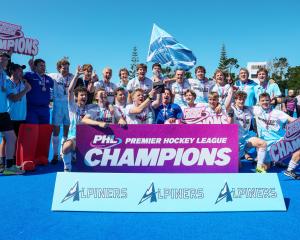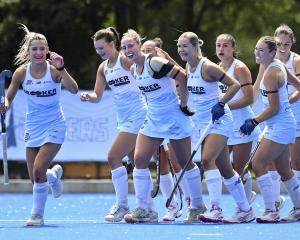
Ford, who is on Hockey New Zealand’s payroll as the player pathway manager, felt the new league had helped lift the profile of the sport while also providing a higher level of hockey to help bridge the gap to international level.
He is also a little biased. The Alpiners men’s side have made it through to Saturday’s final. They play the Falcons in Auckland, while the Alpiners women’s team will play the Mavericks in the bronze-medal match earlier in the day.
"As a whole, I think it’s been really beneficial to Hockey New Zealand," Ford said.
"Just getting the game around the country more and engaging with a bit more of the community. And when you do throw in some of these rule changes like the shootouts, it’s always exciting.
"People want to see a bit of action and see some goals scored."
The conversion was introduced for the league. Following a field goal, the player who has just scored takes the ball back to the 25m line and has a one-on-one with the keeper, shootout style.
A one-goal lead can quickly become two and, equally, a two-goal deficit can be wiped out suddenly.
"When there’s a shootout, people kind of, if they’re ordering a hot dog or something like that, they get to the fence pretty quickly to watch and see what’s happening.
"So, yeah, it’s cool.
"I just think [the league] was desperately needed here in New Zealand," Ford said.
Teams had to approach games differently. You could not just rely on thumping in a penalty corner because field goals were twice as valuable if the conversion went in.
"It makes you think differently about the game and I think it’s healthy when it comes to your penalty corners and how you get creative around those moments."
Some teams took the opportunity to knock the ball further back to set up a field goal opportunity instead of smacking in a drag flick.
Conversions also provided more opportunity to practise shootouts in a game situation.
"Anytime we can put our players and coaches, or anyone involved in high-level hockey, under pressure, it’s a good thing.
"It just means that we just feel a little bit more comfortable when we get into positions like that on the big stage, whether it’s trying to get to Olympics or World Cups or Junior World Cups or even semifinals or finals domestically.
"I think it’s a really positive development. I think [the level of play] has been really good.
"It’s certainly a big step up from NHC [National Hockey Championship]."







